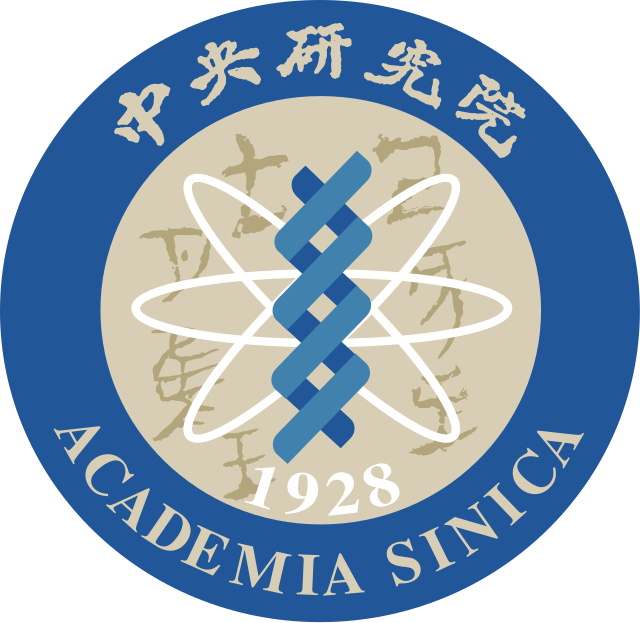Laboratory of immune regulation in the tissue barriers.
Research Field
Dr. Wei-Le Wang received his BSc from the Department of Chemistry, National Taiwan University in 2007. After obtaining a Master’s degree in Immunology from the National Taiwan University in 2009, he continued his training under the guidance of Dr. Mark Boldin at City of Hope and acquired his Ph.D. in 2019. Dr. Wang then conducted his postdoctoral training in the laboratory of Dr. Marco Colonna at Washington University in St. Louis from 2019 to 2022. In October 2022, he established his lab at the Institute of Molecular Biology Academia Sinica.
Dr. Wang’s research focuses on immune regulations. In this field, his contributions encompass characterization of a hematopoietic lineage-specific microRNA miR-142 in the control of adaptive immune responses, including B cell development and function, regulatory T (Treg) cell-mediated immune tolerance. Through analysis of immune cells in the tissue barriers, he identified novel niches at CNS borders for B cell lymphopoiesis and a novel eosinophil subset that is unique to the small intestine and modulates the type 2 immune responses. His current research interests include: 1) B cell tolerance in the meninges. 2) Meningeal B cells in neurodegeneration diseases. 3) Eosinophils and Group 3 innate lymphoid cells in host defense and mucosal immunity.
Tissue barriers are physical interfaces that cover the organs and protect individuals from toxins and pathogens of the external environment. These protective layers consist of a variety of cells, where the stromal cells support tissue structures, provide environmental cues, and interact with the tissue-resident immune cells to sustain physiological function and immune homeostasis.
Our lab is interested in a fundamental biological question of how immune homeostasis is achieved in tissue barriers. We study how cells of the immune system adapt to environmental factors and acquire immune-modulatory functions to support tissue homeostasis. These studies will advance our understanding of mechanisms that render regulatory functions to tissue-resident immune cells and eventually prevent the undesirable immune responses which may lead to allergies, autoimmune disorders, recurrent infections, and increased risks of cancer.
Through analysis of immune cells in the tissue barriers, we identified novel niches at the CNS borders for B cell lymphopoiesis. We also found a novel eosinophil subset unique to the small intestine that modulates the type 2 immune responses. To acquire more insights into the immune regulations in the meninges and small intestine, we are focusing on the studies of 1. B cell tolerance in the meninges. 2) Meningeal B cells in neurodegeneration diseases. 3) Eosinophils in host defense and gut mucosal immunity.
1. B cell tolerance in the meninges.
2. Meningeal B cells in neurodegeneration diseases.
3. Eosinophils in host defense and gut mucosal immunity.
| 2025-29 | Academia Sinica Career Development Award (前瞻計畫) |
| 2022-25 | Academia Sinica Investigator Fellowship (新聘學術獎) |
| 2022-25 | National Multiple Sclerosis Society Postdoctoral Fellowship (Declined due to appointment of the faculty position at Academia Sinica) |
| 2019 | National Institute of Allergy and Infectious Diseases (NIAID) Scholarship (Keystone Symposium) |
| 2018 | European Hematology Association (EHA) 23rd Congress Abstract Award |
| 2018 | American Association of Immunologists (AAI) Trainee Abstract Award |
| 2017 | Dr. Norman & Melinda Payson Fellowship (Declined due to the funding period overlapping with the AAI award) |
| 2016 | American Association of Immunologists (AAI) Careers in Immunology Fellowship |
| INSTITUTION AND LOCATION | DEGREE | Start Date | Completion Date | FIELD OF STUDY |
| National Taiwan University, Taiwan | BA | 09/2003 | 06/2007 | Chemistry |
| National Taiwan University, Taiwan | MA | 09/2007 | 06/2009 | Immunology |
| City of Hope, Duarte, CA, USA | Ph.D. | 08/2012 | 01/2019 | Molecular Immunology |
| Washington University, MO, USA | Postdoctoral | 06/2019 | 07/2022 | Pathology & Immunology |
2 Vacancies
Job Description
The Wang Lab was established in the Institute of Molecular Biology of Academia Sinica in October 2022. The lab is well-funded by generous startup funds. Our lab is interested in a fundamental biological question of how immune homeostasis is sustained in tissue barriers. We study how cells of the immune system adapt to environmental factors and acquire immune-modulatory functions to support tissue homeostasis. These studies will advance our understanding of mechanisms that render regulatory functions to tissue-resident immune cells and eventually prevent the undesirable immune responses that may lead to allergies, autoimmune disorders, recurrent infections, and increased risks of cancer. Currently, our research interests include 1) B cell tolerance in the meninges. 2) Meningeal B cells in neurodegeneration diseases. 3) Eosinophils and Group 3 innate lymphoid cells in host defense and mucosal immunity.
Preferred Intern Education Level
Bachelor/Master
Skill sets or Qualities
Candidates with experience in a wide range of molecular and cellular techniques, including but not limited to flow cytometry analysis, cell culture, imaging-related skillset, and molecular cloning are encouraged to apply. Experience with mouse models of diseases and mouse handling is advantageous.
